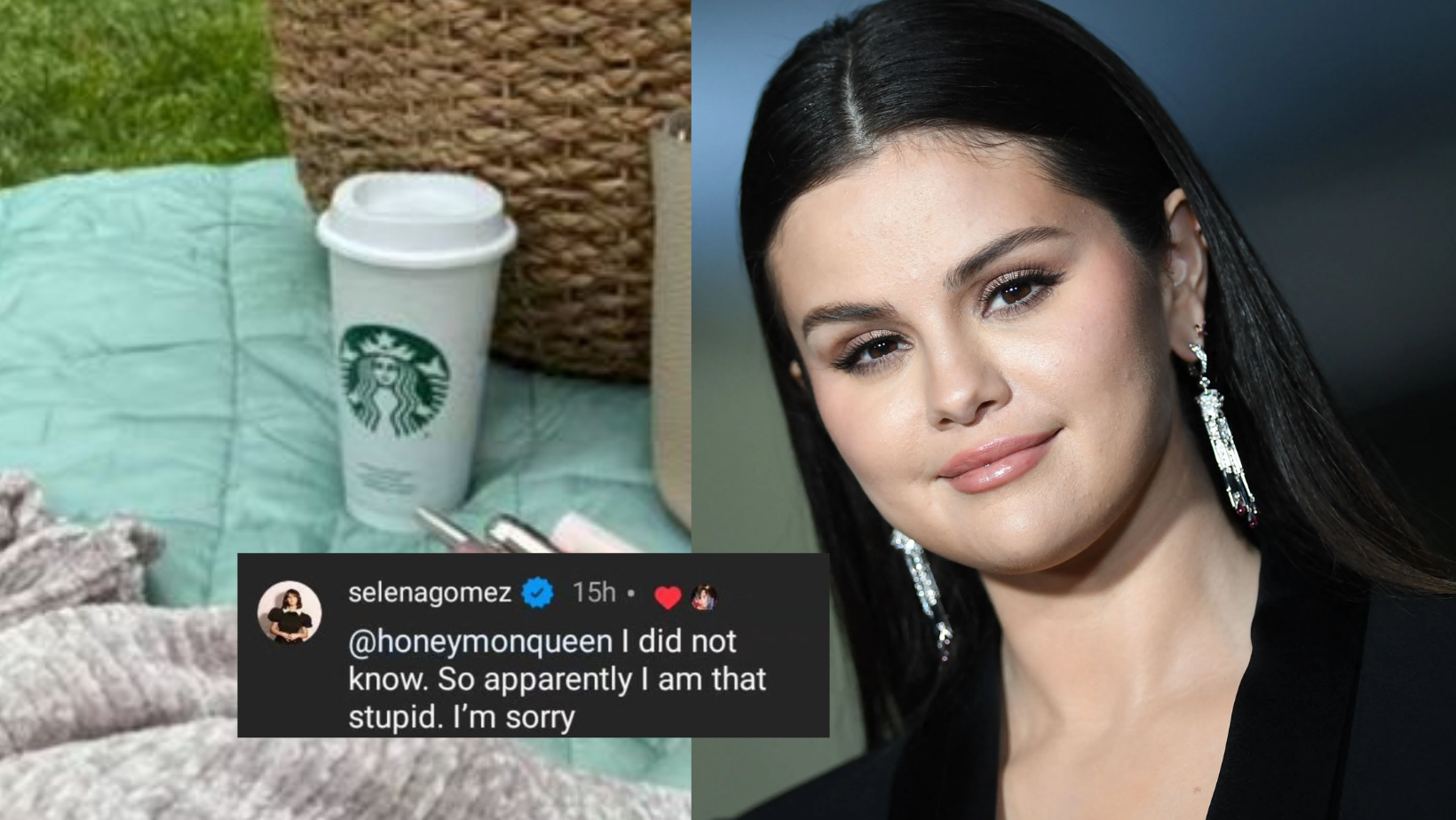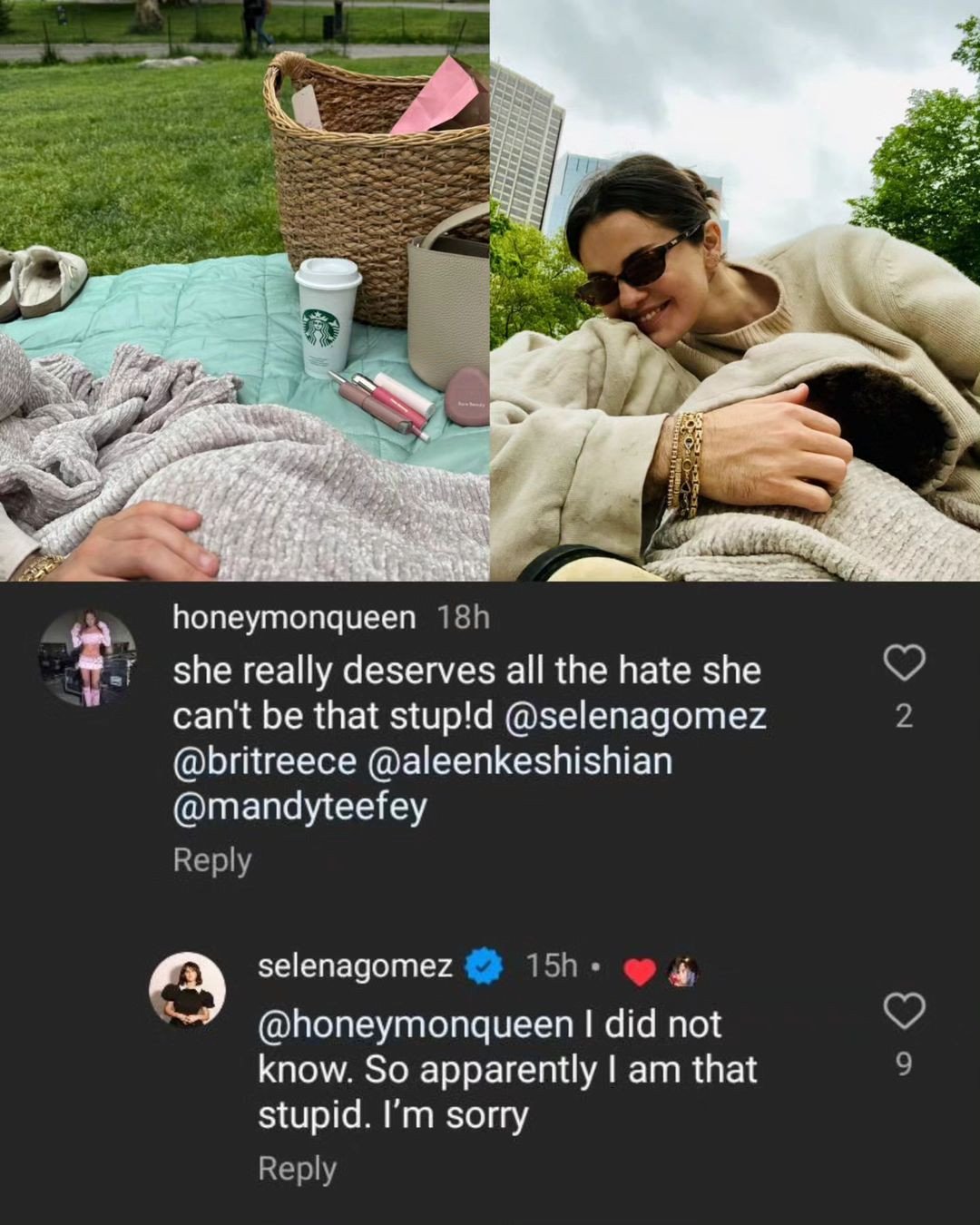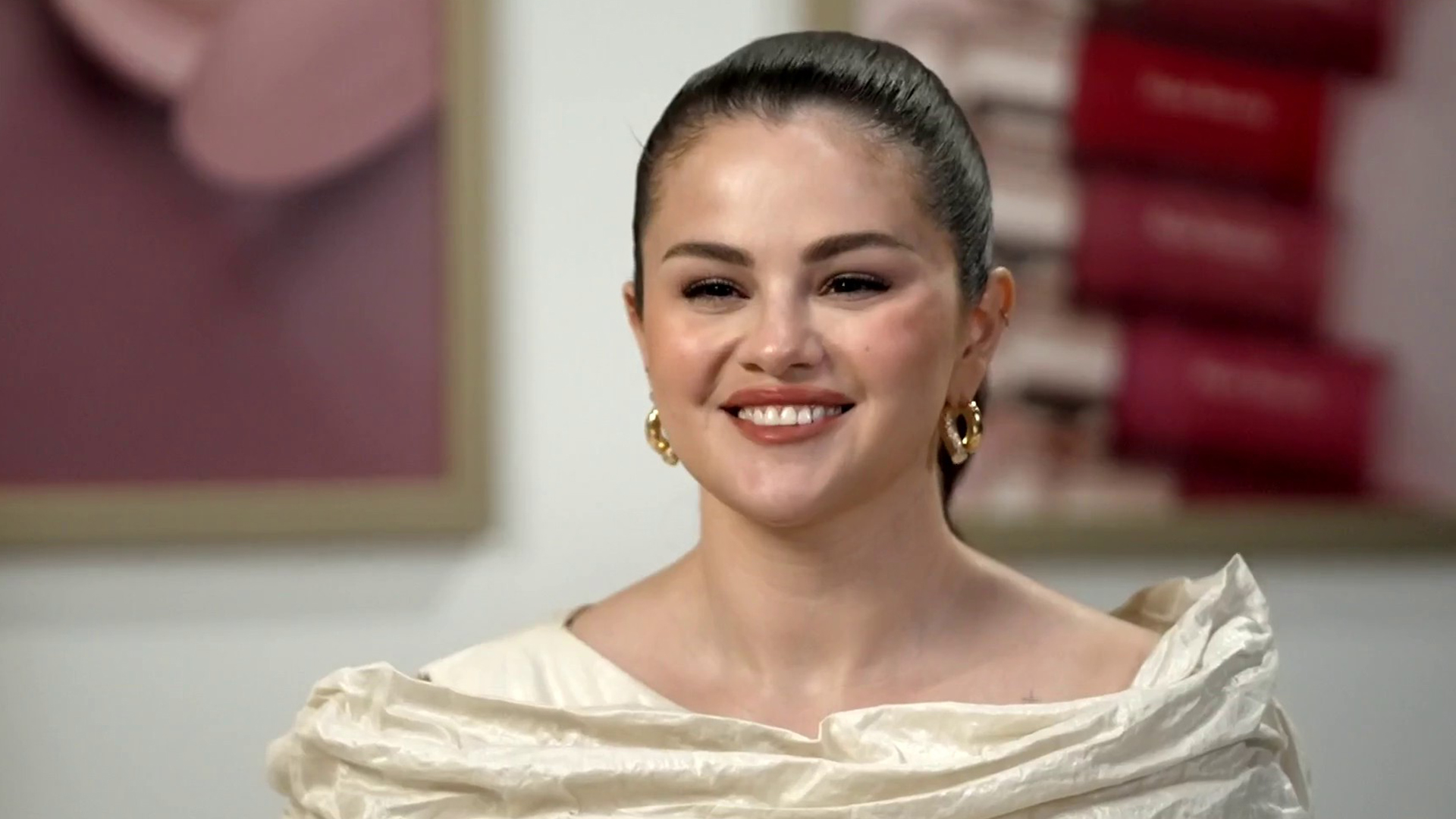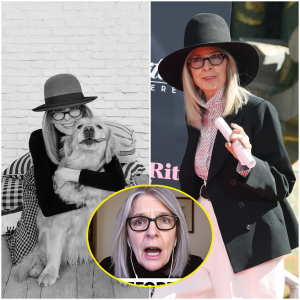Posted: 2024-7-13
Singer Selena Gomez recently found herself at the center of a social media firestorm, highlighting the growing tensions surrounding the Boycott, Divestment and Sanctions (BDS) movement. What began as a seemingly innocuous Instagram post featuring a Starbucks cup escalated into a heated debate about awareness, activism, and the complexities of the Israeli-Palestinian conflict.
 The controversy erupted after Gomez posted a picture of herself holding a Starbucks cup. While the image itself appeared harmless, it drew criticism from a follower deeply invested in the BDS movement. This follower accused Gomez of ignorance regarding the ongoing boycott against Starbucks due to the company’s continued business ties with Israel. The BDS movement aims to pressure companies and individuals to divest from or boycott Israeli products and institutions in response to the ongoing conflict.
The controversy erupted after Gomez posted a picture of herself holding a Starbucks cup. While the image itself appeared harmless, it drew criticism from a follower deeply invested in the BDS movement. This follower accused Gomez of ignorance regarding the ongoing boycott against Starbucks due to the company’s continued business ties with Israel. The BDS movement aims to pressure companies and individuals to divest from or boycott Israeli products and institutions in response to the ongoing conflict.
The accusation stemmed from Starbucks’ decision to maintain operations within Israel, a stance seen by some as tacit support for the nation’s policies towards Palestinians. The follower’s comment reflected this sentiment, stating, “She really deserves all the hate… she can’t be that stupid.” This harsh criticism hinged on the belief that Gomez’s lack of awareness regarding the boycott was simply a facade.

To her credit, Gomez responded directly to the criticism, acknowledging her lack of knowledge and expressing remorse for any unintended offense. Her reply, “I did not know. So apparently I am that stupid. I’m sorry,” showed a willingness to learn and take responsibility for her actions.
This incident serves as a microcosm of the BDS movement’s growing influence. The movement seeks to exert economic pressure on Israel in response to its actions in the Palestinian territories. Proponents argue that this financial pressure can incentivize change and hold Israel accountable for its policies.

The controversy for Gomez didn’t end there. Following a separate incident where she faced criticism for claiming that a single social media post wouldn’t make a difference, her makeup brand, Rare Beauty, took a more active stance. The brand’s Instagram account shared a post acknowledging a “humanitarian crisis in Gaza” and detailed donations made to both the International Red Cross and the Palestinian Red Crescent Society.
However, some social media users, particularly those deeply involved with the BDS movement, were not swayed. They argued that Gomez’s approach represented a “both sides” narrative, implying equal blame on both Israel and Palestine. This perspective criticized her donation to Magen David Adom, Israel’s National Emergency Medical Service, arguing that it indirectly supports the Israeli military.

The controversy surrounding Selena Gomez’s social media activity highlights the complexities of the Israeli-Palestinian conflict and the challenges of navigating it within the public eye. It underscores the importance of awareness, open dialogue, and responsible action when engaging with such a sensitive topic. The incident also offers a glimpse into the growing influence of the BDS movement and the passionate discussions it ignites. Whether someone aligns with the movement’s goals or not, it’s undeniable that the BDS movement has become a significant voice in the ongoing struggle for peace in the region.

Moving forward, celebrities like Selena Gomez, who often have a vast social media reach, can play a valuable role in raising awareness about the conflict and promoting constructive dialogue. By acknowledging the complexities of the situation, educating themselves on the issues at hand, and utilizing their platforms responsibly, celebrities can contribute to progress and move the conversation beyond social media firestorms.










